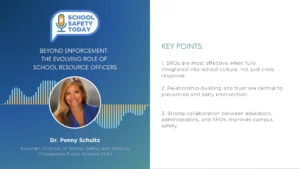From Home-Schooling to Public School, Improving Teen Internet Use Starts with Parents
A recent report from the Center for Disease Control and Prevention highlights challenges in regulating teen internet use and the significant effects that social media and the web have on our country’s children. The CDC’s Youth Risk Behavior Survey, which is released every two years, shows how toxic these influences can be for both mental and physical health.
According to the report, in 2021, 29% of teenage boys and 57% of teenage girls experienced persistent feelings of sadness and hopelessness. That means that almost every day for two weeks straight, these teens stopped doing their regular activities. Thirty percent of teenage girls seriously considered suicide. That’s over 10% more than in 2011. The internet, and especially social media, plays a significant role in this behavior.
Knowing this, it makes sense why the CDC produces the report; the internet can become a disease if not treated, and parents are the key to treatment. But it will require parents to practice what they preach. Marissa Johnston, host of The Buzz podcast for Firefly Tutors, which provides focused tutoring support for homeschooled and public school students, emphasizes how important it is for parents to model their own internet use in order to improve teen internet use.
Marissa’s Thoughts
“The findings in this article indicate a strong need for greater awareness not only when we are accessing the internet or social media content, but when our children are, and keeping in mind what they’re potentially being exposed to and how it’s affecting their well-being.
The algorithms that are set forth by these social media outlets, especially since COVID, are intended to capture the audience, to hold their attention there for as long as possible. That’s how they make their money. And so, they have created these clickbait titles and captions that lure someone in to watch a video that may ultimately not be satisfying at all. And now you’ve been kind of tricked into watching a video that may have a negative impact on your mental health or even your physical well-being. And the same goes for children, but with an even stronger impact because they’re just kids. They haven’t, their brains haven’t developed fully yet, and they don’t have that awareness that, ah, this is fake, or this was just meant to capture my attention or this is acting or they’ve used Photoshop or something like that.
So, a couple things to do, especially for your kids, is model for them how to put down the social media, how to set it aside and remove yourself from it, or how to hide or block or unfollow things that are unsatisfying for you or having a negative impact for on you, and also checking your own well-being and modeling that for your child, too. Assessing how a video makes you feel, doing it out loud so that your child understands the thought process there. That can be a really crucial way to supporting your child when they may not otherwise know how to navigate social media and what it’s doing to them.”
Article written by Adrienne St. Clair.








